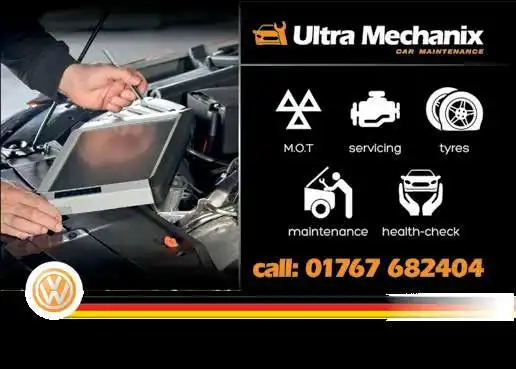
3 minute read
DVLA Devil
from Potton July 2022
by Villager Mag
As far as dealing with the DVLA is concerned, the devil is in the detail. Here are six things you need to ensure are up to scratch if you want to steer clear of potentially landing yourself in trouble with the UK’s driver and vehicle licensing authority. As drivers, we know the DVLA well – they are the licensing gurus who regulate when, where and how we drive our motor vehicles. As the gatekeepers to our tarmac autonomy, most motorists are aware of the need to play by the rules; yet even the most conscientious of road users can fall foul of DVLA rules, and in doing so, run the risk of prosecution. Here’s a reminder of some of the things you must keep the DVLA informed of in order to uphold your driving commitments for UK roads:
1. Change of address
Advertisement
This is the big one. If you have moved and your address no longer matches that on your licence, you must contact the DVLA immediately. Being caught with an incorrect address can lead to an instant fine, and even temporary addresses must be updated. The good news is the change can be made quickly and easily online. It doesn’t cost anything, and your gleaming new licence will typically be with you within a week.
2. Change of name or gender
You will also be breaking the law if you fail to inform the DVLA of a change of name or gender. You are still permitted to drive while new documents are being produced that reflect a change, and again the process is relatively straightforward and cost-free.
3. Change in marital status
We all go through relationship changes, and if you are entering into a marriage or exiting one – which includes being widowed – you’ll need to let the DVLA know.
4. Change of vehicle
While this one seems obvious, and very often the process of changing ownership is done for you – perhaps because you’ve bought a car from a registered dealership, or because the person you have sold a car to has taken the New Keeper slip from the logbook (V5C) – it is still your responsibility to check that the change has taken place and been listed with DVLA. This is essentially for your own good, because while there’s no specific penalty for failing to inform the DVLA of an ownership change, if the person you’ve sold a car to goes on to commit a motoring offence, you run the risk of being held accountable if the vehicle remains in your name.
5. Change of vehicle usage
Declaring a vehicle ‘SORN’ (Statutory Off Road Notification), means you will not use it. You’ll save money

in terms of being refunded for full months of road tax, although you will still need to pay car insurance. The penalty for driving a car that is SORN is anything up to £2,500.
6. Change in medical conditions
Naturally a big part of what the DVLA sets out to achieve concerns safety on our roads, so you need to report any changes to your health. For example, if your eyesight deteriorates, you may need to prove you are still competent on the roads – the barometer is being able to read a licence plate from 20 metres away. More severe conditions require urgent reporting too, and these might come in the form of


diabetes, epilepsy, blackouts, fainting and loss of consciousness, as well as neurological conditions such as multiple sclerosis, motor neurone disease, dementia, Parkinson’s disease and the after-effects of a stroke. There are driver guidelines as to the severity of a condition, and this information will indicate whether your ailment may leave you unfit to drive a car for a period of time. The DVLA’s intention is not to keep drivers off the road; more to ensure those who are on the road are safe.












